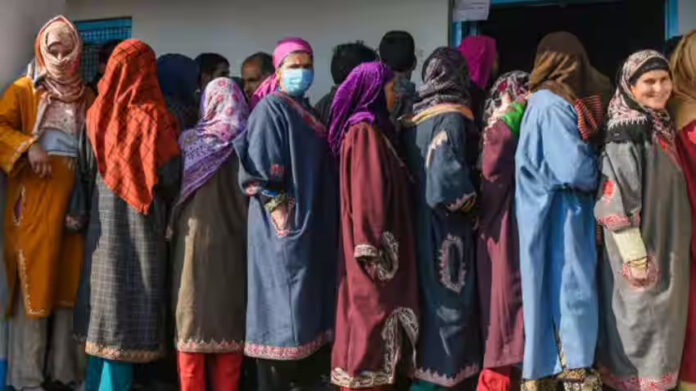Paromita Das

GG News Bureau
New Delhi, 18th August. The first assembly election in Jammu and Kashmir in over a decade is not just another electoral exercise—it’s a historic event set against the backdrop of profound political and constitutional changes. For the first time since the abrogation of Article 370 in August 2019, over 23 lakh voters from 24 constituencies across seven districts will participate in a democratic process that will shape the region’s future. With 219 candidates in the fray, including 90 independents, this election is the first major opportunity for the people of Jammu and Kashmir to voice their preferences in a new political environment.
The stakes are high. Since June 2018, when the Bharatiya Janata Party (BJP) ended its alliance with the Peoples Democratic Party (PDP), leading to the resignation of then-Chief Minister Mehbooba Mufti, the region has been under central rule. The abrogation of Article 370, which granted special autonomy to Jammu and Kashmir, fundamentally changed the region’s political landscape, stripping it of its special status and bifurcating it into two Union Territories. This election, the first since these major constitutional changes, represents a critical step toward reinstating local governance and restoring a semblance of normalcy.
A Region in Transition
The region has undergone significant political, economic, and social changes in recent years, and this election serves as a barometer of public sentiment towards these transformations. The central government has emphasized development and integration, but the road has been fraught with challenges, including heightened security concerns and political unrest. The electorate is now tasked with choosing leaders who can navigate these complexities and work toward a stable and prosperous future for Jammu and Kashmir.
A Decade of Political Uncertainty
Since the fall of the last elected government in June 2018, Jammu and Kashmir has been under Governor’s Rule, followed by President’s Rule. The Bharatiya Janata Party (BJP) withdrew from its alliance with the Peoples Democratic Party (PDP), leading to the resignation of then-Chief Minister Mehbooba Mufti. The abrogation of Article 370, which stripped Jammu and Kashmir of its special status, further transformed the region’s political environment, creating new challenges for governance and regional representation.
This election is significant because it offers the people of Jammu and Kashmir a chance to re-engage with the democratic process, ensuring local representation that has been absent for years. It also provides an opportunity for political parties to address the region’s unique issues, including security concerns, economic development, and autonomy.
The Importance of Free and Fair Elections
The importance of ensuring a free, fair, and peaceful election cannot be overstated. Given the region’s sensitive security situation, multi-tier security arrangements have been put in place, involving the Central Armed Paramilitary Forces (CAPF), Jammu and Kashmir Armed Police, and local law enforcement agencies. Over 14,000 polling staff have been deployed to oversee voting at 3,276 polling stations, highlighting the Election Commission’s commitment to safeguarding the democratic process in this critical region.
This election not only reflects the desire for greater political engagement but also the people’s yearning for peace and development after years of conflict and uncertainty. While the election may not immediately resolve all of Jammu and Kashmir’s issues, it is an essential step towards rebuilding trust between the government and its citizens. It offers a platform for people to express their will and choose leaders who can represent their aspirations for stability, progress, and dignity.
A Crossroads for the Region
The candidates, ranging from established parties like the National Conference and PDP to numerous independents, represent a wide array of political perspectives. Voters are tasked with determining the future political direction of Jammu and Kashmir, deciding whether they seek continuity, change, or a new vision altogether.
Conclusion
This election represents more than a return to electoral politics in Jammu and Kashmir—it is a referendum on the political reforms instituted post-Article 370 and the region’s future governance model. With security tightened, administrative machinery well in place, and a diverse array of candidates, the stakes are higher than ever. The success of the election will be a litmus test for the credibility of Bharat’s democratic commitments to its northernmost region.
While the election offers hope for a return to normalcy, the deeper challenges of restoring trust between the state and its citizens remain. The outcome will not only affect the political landscape but also shape the broader narrative of Jammu and Kashmir’s place within the Bhartaiya Union. A successful and peaceful election is essential, but the long-term goal should be to foster sustained development and regional stability.
The post Jammu and Kashmir Elections: A Decisive Moment for Democracy in the Region appeared first on Global Governance News- Asia's First Bilingual News portal for Global News and Updates.




